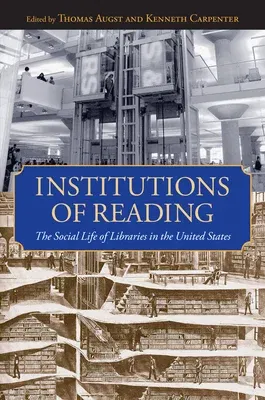Institutions of Reading: The Social Life of Libraries in the United StatesPaperback, 2 July 2007

Temporarily out of stock
Free Delivery
Cash on Delivery
15 Days
Free Returns
Secure Checkout

Part of Series
Studies in Print Culture and the History of the Book
Part of Series
Studies in Print Culture and the History of the Book (Paperback)
Print Length
392 pages
Language
English
Publisher
University of Massachusetts Press
Date Published
2 Jul 2007
ISBN-10
1558495916
ISBN-13
9781558495913
Description
Product Details
Book Format:
Paperback
Country of Origin:
US
Date Published:
2 July 2007
Dimensions:
23.37 x
15.65 x
2.39 cm
ISBN-10:
1558495916
ISBN-13:
9781558495913
Language:
English
Location:
Amherst
Pages:
392
Publisher:
Series:
Weight:
539.77 gm